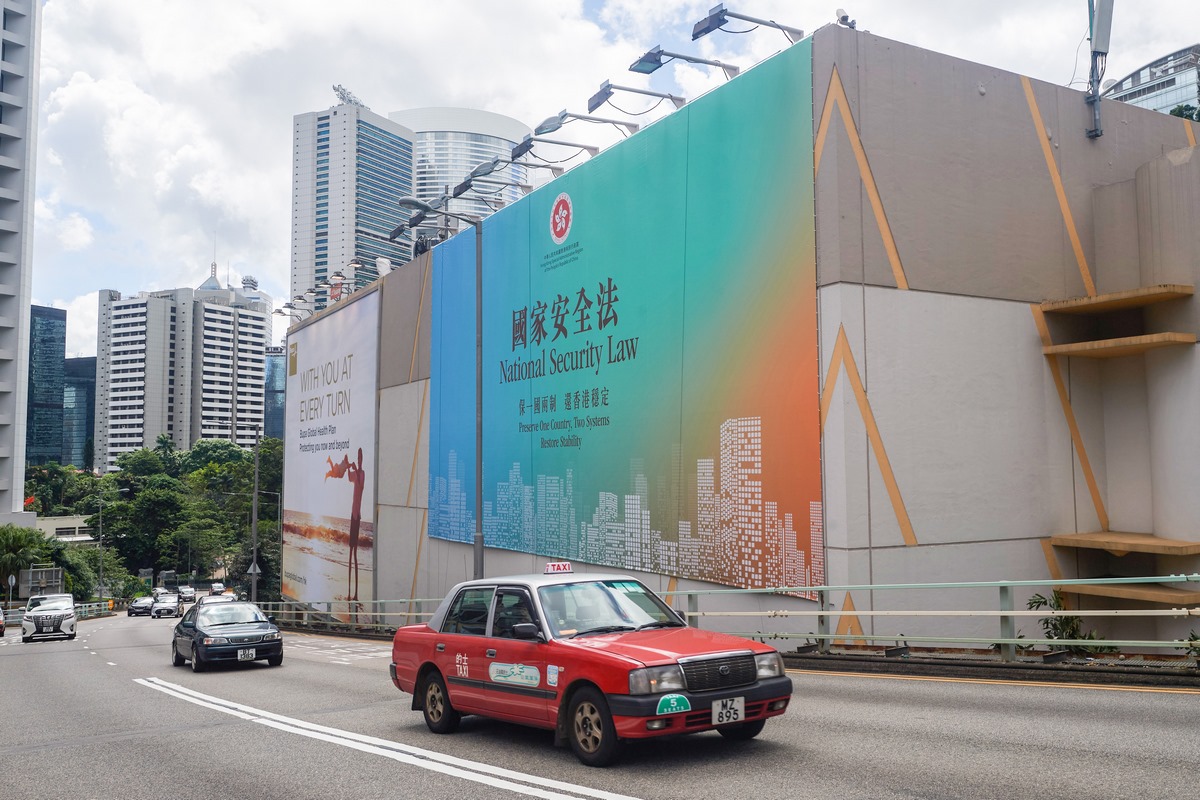The defendant in Hong Kong’s second national security trial chose on Thursday not to give evidence or summon witnesses, as the case was adjourned to next week.
Ma Chun-man, 30, became the second person in the city to face a national security trial after he was accused of “inciting secession” over the content of slogans he chanted and speeches he made in public or via social media.

The defence said that Ma will not give statement in court, nor will they summon any witness as the case entered the third day.
District Court judge Chan, one of the city’s hand-picked national security judges, ordered the case to be adjourned to next Tuesday for the defence’s closing statement.
The prosecution initially asked for the case to be adjourned for closing statements at a later date, but the request was denied by Chan, as the judge said that according to the national security law, national security cases should be processed “as quickly as possible.”
After the court session ended, two people sat in the public gallery waved, as Ma waved back.
October verdict
Once a regular sight at the 2019 protests and nicknamed “Captain America 2.0”, Ma has been in custody for 10 months since his arrest last November.
The court is also expected to hand down a verdict on October 25. The offence is punishable by up to 10 years in prison but sentences in the district court, where the trial is being held before a single judge, are capped at seven years.
Unlike the first security law trial, which involved a motorcyclist crashing into a group of police officers, Ma is on trial solely for the content of slogans he chanted and speeches he made in public or via social media.
Prosecutors say Ma called 20 times for a split from China through slogans, signs and media interviews. They submitted five black t-shirts printed with the words “I’d rather die speaking than live in silence” as evidence to the court on Wednesday.

The Beijing-imposed national security law, criminalised subversion, secession, collusion with foreign forces and terrorist acts, which were broadly defined to include disruption to transport and other infrastructure.
The move gave police sweeping new powers, alarming democrats, civil society groups and trade partners, as such laws have been used broadly to silence and punish dissidents in China. However, the authorities say it has restored stability and peace to the city.
Correction 5.10.21: A previous version of this article incorrectly stated that Ma Chun-man was accused of inciting subversion. He was accused of inciting secession
Support HKFP | Policies & Ethics | Error/typo? | Contact Us | Newsletter | Transparency & Annual Report | Apps
Help safeguard press freedom & keep HKFP free for all readers by supporting our team

latest national security stories























